Farmers’ Market Etiquette Most Folks Don’t Know or Practice!
I suspect you’ll be reading a lot throughout the summer on how to shop at your local farmers’ markets. There are lots of tips and tricks out there to make the experience easier for you.
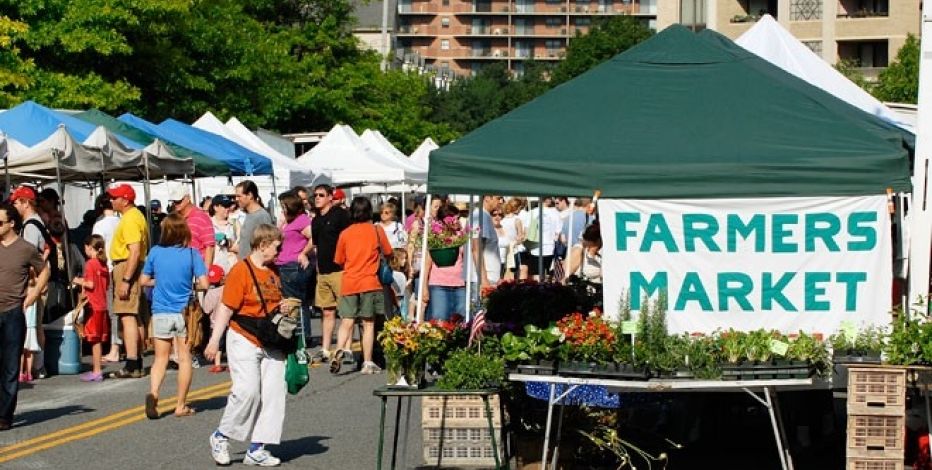
But what I want to address is the etiquette that ought to be shown when having this experience, that will make it easier for the farmers! Just like the golf course, the ski slopes, or the tennis court, there’s an etiquette you ought to know and practice.
I found this information on The Kitchn (www.thekitchn.com) and feel it’s worth sharing. Why? Because while most of us love these markets, not that many folks know how to gracefully navigate them. For instance, is it OK to bring your dog? Is it OK to try to bargain for a good deal? Is it OK to handle the produce? And so on.
It’s a fact (though not talked about much) that the famers’ market experience can be challenging. So The Kitchn talked to some organizations that run these markets for their insider shopping etiquette tips. Read on for eleven suggestions for making the most of your farmers’ market experience and practicing good etiquette too!
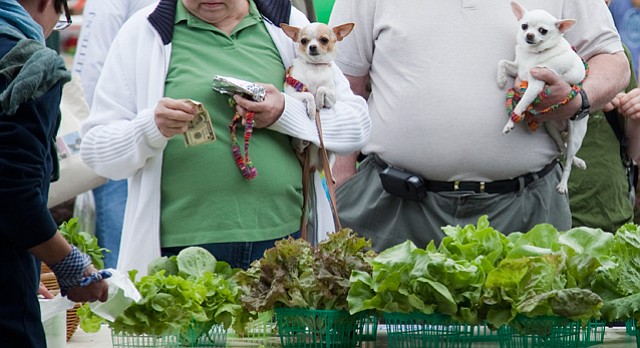
1. Leave the dog at home. Most farmers markets do not allow dogs (except for service dogs) due to health and safety laws. But even if your market does allow dogs, it’s really best etiquette to leave poochie home. It’s less hassle for you and your fellow shoppers.
2. Understand what's in season so expectations are realistic. To help with this, many markets have seasonality charts you can look up on their websites.
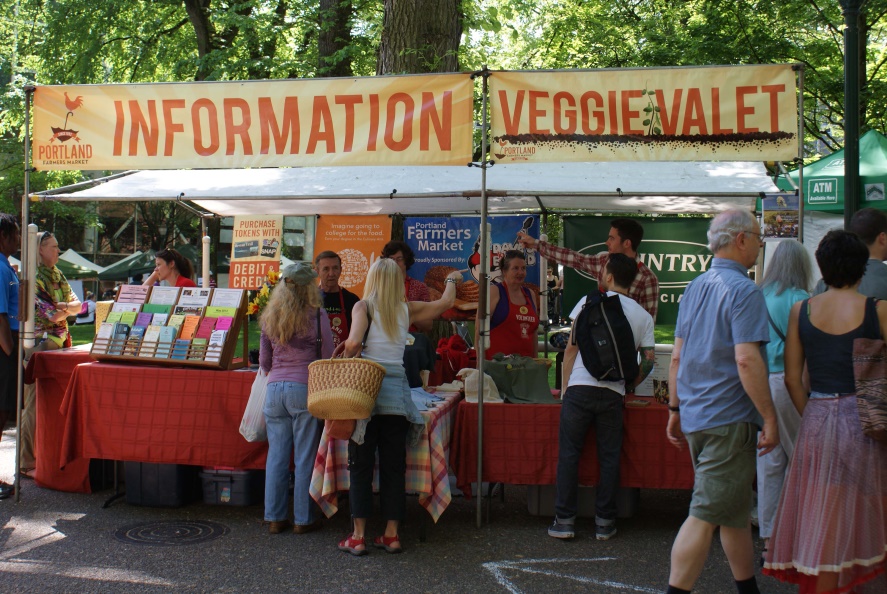
3. Take advantage of the market's information booth. This is a one-stop spot for learning what customer services they offer. For example, some market organizations offer free cooking demos and a Veggie Valet, which allows customers to drop off their veggies and pick them up later.
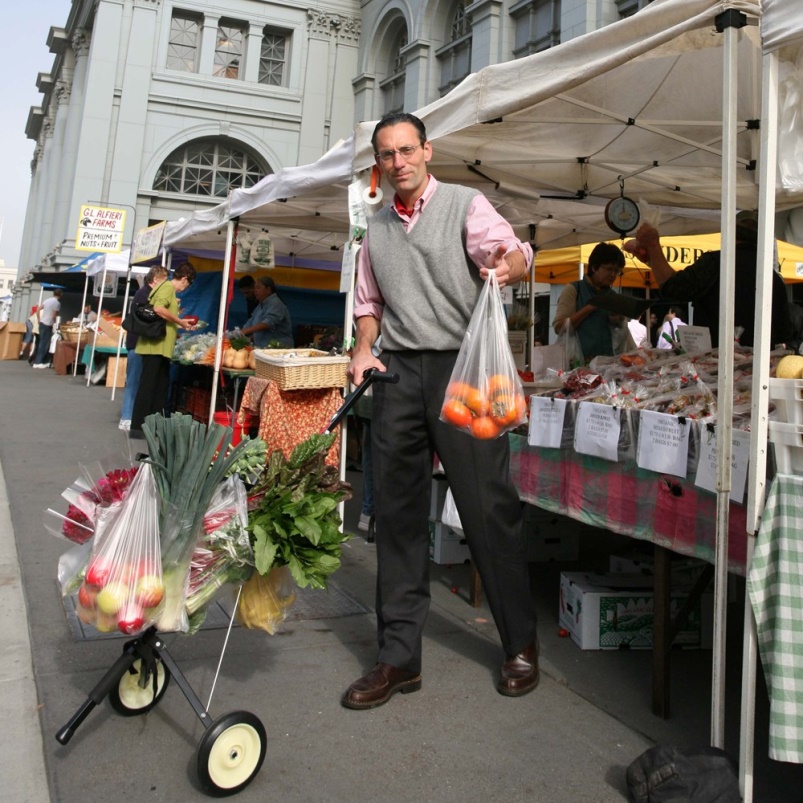
4. Come prepared with shopping cart and small bills. Consider bringing a folding shopping cart if you anticipate a large haul. And small bills are good etiquette; farmers always appreciate not having to make change for a large bill (especially earlier in the day).
5. Bargaining is NOT OK, so don’t go there. The vendors understand that while quality is important, getting the best is as well. But don’t insult them by trying to haggle. Instead, stroll through the market first so you can not only find what’s in season, what’s new and fresh, what’s good quality, but also what’s the best deal(s) of the day.
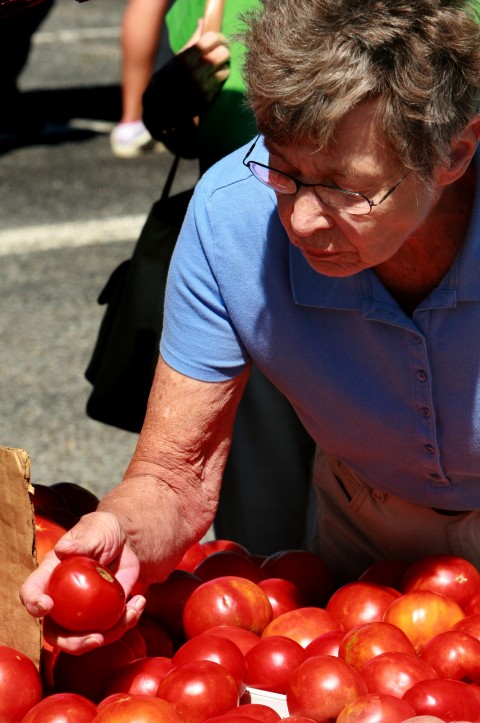
6. Be respectful of the produce. Don't squeeze tomatoes, avocados, and fruit. It’s tacky and rude. If you're not sure about how ripe something is, ask the farmer to help you. When you see a new/interesting/strange fruit or vegetable — or even one you're familiar with but know nothing about — ask the farmer what to do with it. You may discover a new favorite item or a recipe for an old standby.
7. Talk to the farmers and staff. Having access to the experts that grow what you eat is a huge benefit of these markets. While being respectful of the fact that they're working, of course, you might ask where the farm is located, what sort of practices they use, etc. Many farmers are excited to talk about what they do.
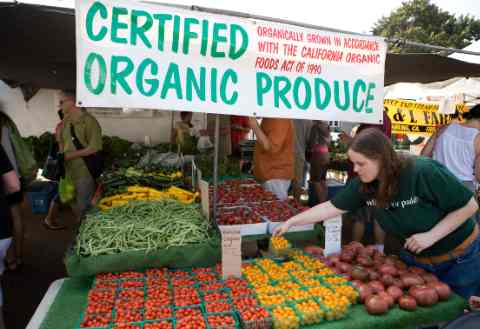
8. If organic certification is important to you, ask about it. Don't assume that produce at the farmers market is certified organic. Vendors should have their certification prominently displayed. Ask farmers about their practices.
9. Offer to volunteer! If you are interested in supporting your favorite farmer (and have some extra time on Farmers Market day), offer to volunteer! You will learn even more about how your food is grown or produced and you will probably go home with some delicious produce (or meat or cheese or plant starts) for your trouble.
AND, if you like to jam, can, or pickle, you can almost certainly get a deal if you arrange in advance with the farmer to buy in bulk — a flat of strawberries, a case of tomatoes or a 10 pound container of green beans, for example.
10. Show a farmer how you used their produce. Take time to report back to farmers on how delicious or useful their produce was. Let them know when something is particularly delicious or let them know your favorite way to cook or serve an item they produce.
And now for my favorite tip:
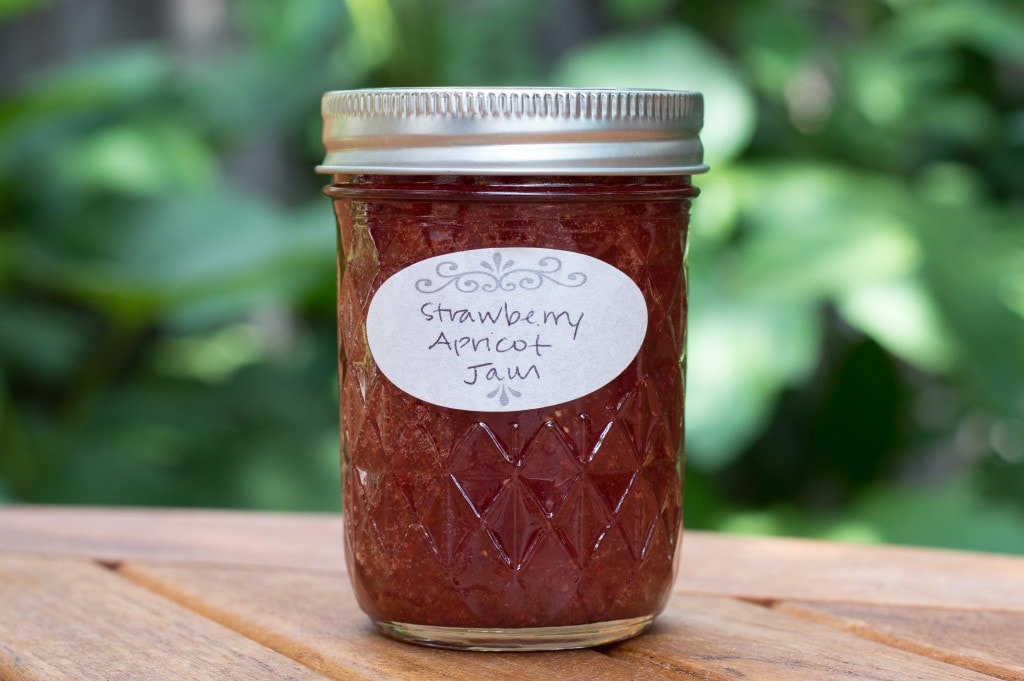
11. Share your expertise with the farmers! If you make jam or pickles, or can fruit, think about sharing a jar with the farmer you bought the produce from. This will make his or her day!
- www.foxbusiness.com
- www2.ljworld.com
- www.chalkboardthoughts.eastonworks.com
- www.cartsonthego.com
- www.washingtonpost.com
- www.san-diego-beaches-and-adventures.com
- www.leftyspoon.com
 Alice Osborne
Alice Osborne
Weekly Newsletter Contributor since 2006
Email the author! alice@dvo.com
